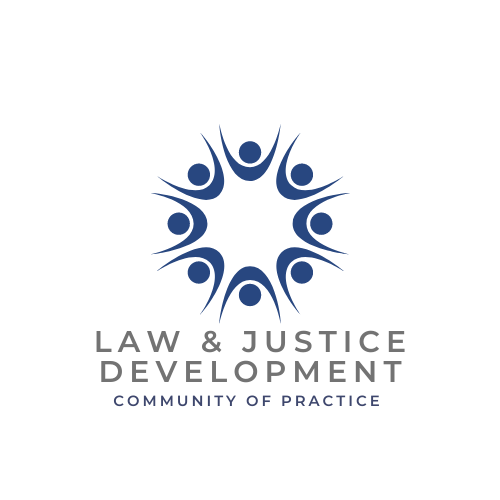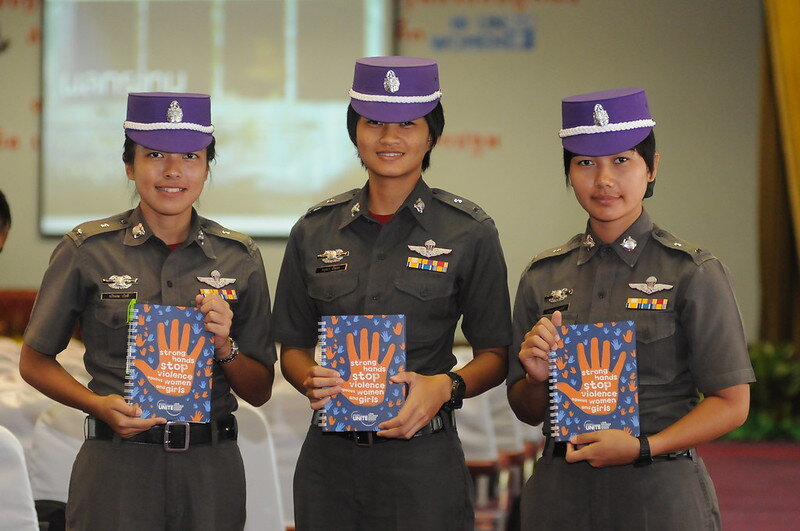Adapting to new ways of working: where to next for law and justice assistance?
Thursday 26 November 2020
Despite the persistence of injustice around the world, justice programming has experienced a decline in funding from many traditional donors, including Australia. This has triggered a search for new ways of financing justice support. In addition, the long-standing recognition of the importance of locally-led justice programs has been compounded by the COVID-19 pandemic, prompting a significant shift to localisation of programming and remote management. In this session we discuss adaptations to new ways of working that these shifts require.
Speakers:
Pilar Domingo, Overseas Development Institute: Leveraging sector financing in support of justice
Erin Anderson, Australia Anti-Trafficking Program: Localising politically smart justice programming in the context of COVID
New strategies for combating violence against women
Thursday 19 November 2020
Australia, like many other donor countries, has made significant investments in combating violence against women through justice programming. While there are a range of common approaches supported to address this challenge, its global prevalence and persistence requires that our strategies are continually improved and diversified. This session will present novel approaches to addressing violence against women in the Asia-Pacific and discuss how new practices might best be shared.
Speakers:
Fiona Hukula, PNG National Research Institute: Beyond empowerment: working with perpetrators and on sorcery-related violence in PNG
Hao Yang, The Asia Foundation China: Combating domestic violence and sexual harassment in China’s workplaces
Megan Hirst , International Human Rights Lawyer Doughty Street Chambers: Beyond VAW: Violence against children in Timor-Leste
Leveraging technology for improved justice outcomes
Tuesday 17 November 2020
Technological innovation has taken on even greater salience in 2020 with the COVID-19 pandemic pushing programs to gather data, engage justice seekers and providers, and deliver results at a distance. While technology can indeed offer an important platform for ensuring more people-centred justice, it can also be a costly and unsustainable investment that does not connect to local realities. This keynote presentation by global justice innovator, Sam Muller, talked about the need for a transformation in our thinking about how best to meet people’s justice needs. It was followed by a panel discussion providing two ‘windows into practice’ of how technological innovation is being used to improve access to justice in the Indo-Pacific region.
Keynote speaker:
Discussants:
The Honourable Sir Albert Palmer, Chief Justice of the Solomon Islands
The impact of evaluations on law and justice learning and practice
Thursday October 1 2020
This event, moderated by Gordon Peake, explored the headline findings of two reviews-Indonesia and Vanuatu- and looked at what they tell us about what works (and what does not) in law and justice assistance, as well as how these reviews are contributing to learning, program practice and the direction of Australian law and justice assistance.
Speakers:
Paul Nichols, Team Leader, Review Team for the Vanuatu Law and Justice Program
Binziad Kadafi, Indonesia Justice Expert, Review Team for the Australia-Indonesia Justice Partnership
Discussant:
Clare Manuel, Justice Expert, Review Team for the Solomon Islands Justice Program
Law & Justice: COVID19 and recovery
Thursday 23 July 2020
In this Workshop we talk with Maaike de Langen from Pathfinders for Peaceful, Just and Inclusive Societies in New York about the most pressing priorities that the public health emergency poses for justice leaders and the role justice plays in the economic crisis and recovery and the implications for law and justice practice.
Measuring and Influencing at a Distance: Thinking & working politically in an environment shaped by COVID-19
Wednesday 3 June 2020
This event looked at how researchers, M&E staff, practitioners and local partners are collecting data, researching and ‘thinking and working politically’ in an environment shaped by COVID-19. It explored the challenges, local impacts and learnings from working at a distance during the COVID19 pandemic.
Webinar recording available here
Presentations:
A Monitoring and Evaluation, a practitioner’s experience from the Pacific and Solomon Islands - Alan Mua Illingworth, Solomon Islands DFAT Justice Program
Monitoring for Adaptive Management: Managing MERL during a COVID-19 lockdown - Carolyn O’Donnell, Director for Monitoring, Evaluation, Research and Learning (MERL), The Asia Foundation Nepal
M&E in a time of COVID-19 - Chris Roche, Professor of Development Practice at La Trobe University and Director of the Institute for Human Security and Social Change
The challenges of thinking and working politically at a distance: Experience from Myanmar - Veronica Taylor, Professor of Law and Regulation at the Australian National University.
Women, Gender and Security Toolkit
Thursday 12 March 2020
This event, co-hosted by DCAF, Monash GPS and the Law and the ANU Justice Development Community of Practice, launched the new DCAF, OSCE/ODIHR, UN Women Gender and Security Toolkit which draws together key lessons of the past decade in promoting gender equality in security and justice. The Toolkit aims to share new and emerging good practices, reflecting on how they have been developed. The Toolkit is designed to help security and justice sector institutions to integrate a gender perspective: the sector needs to move beyond simply increasing the numbers of women, and become more aware of and responsive to different gendered needs of the entire population. In doing so, attention to often neglected security and justice needs of women and girls must always be a key priority. The Toolkit, jointly published by DCAF, OSCE/ODIHR, and UN Women, is available here.
Presentations:
Speakers: Lisa Denney (Policing and Gender); Eleanor Gordon (Justice and Gender); Henri Myrttinen (Security Sector Governance, Security Sector Reform and Gender)
Chair: Associate Professor Katrina Lee-Koo, Deputy Director, Monash GPS Centre
Discussant: Prof. Veronica Taylor, Co-Convenor, Law and Justice Development Community of Practice









